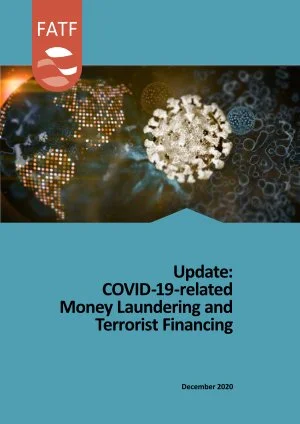Update: COVID-19-Related Money Laundering and Terrorist Financing Risks
By The Financial Action Task Force (FATF)
The COVID-19 pandemic has led to unprecedented global challenges, human suffering and economic hardship. The pandemic has also spawned a range of COVID-19-related crimes, which are creating new sources of income for criminal networks. In May, the FATF highlighted the COVID-19-related money laundering and terrorist financing risks and policy responses.
Today, the FATF releases an Update-COVID-19-Related-Money-Laundering-and-Terrorist-Financing-Risks
The paper confirms the concerns expressed by the FATF in May, including:
Changing financial behaviours - especially significant increases in online purchases due to widespread lockdowns and temporary closures of most physical bank branches, with services transitioning online.
Increased financial volatility and economic contraction - largely caused by the losses of millions of jobs, closures of thousands of companies and a looming global economic crisis.
To respond to these evolving risks, authorities and the private sector need to take a risk-based approach, as required by the FATF Standards. This means mitigating the money laundering and terrorist financing risks without disrupting essential and legitimate financial services and without driving financial activities towards unregulated service providers.
Supervisors should also clearly communicate about the national risk situations and regulatory expectations. There is no one-size-fits-all approach. However, the FATF’s report on risks and policy responses provides guidance on how jurisdictions should address these issues.
Paris: FATF, 2020. 34;p.


